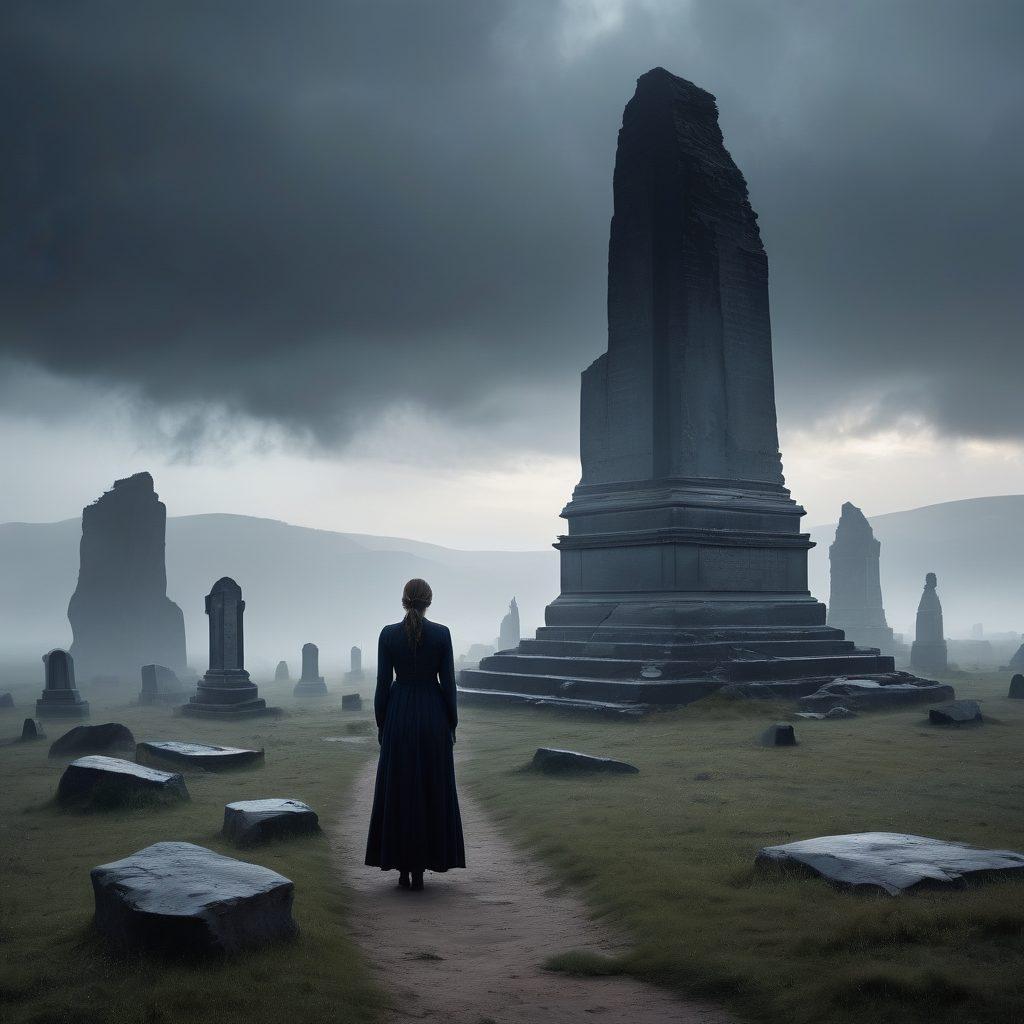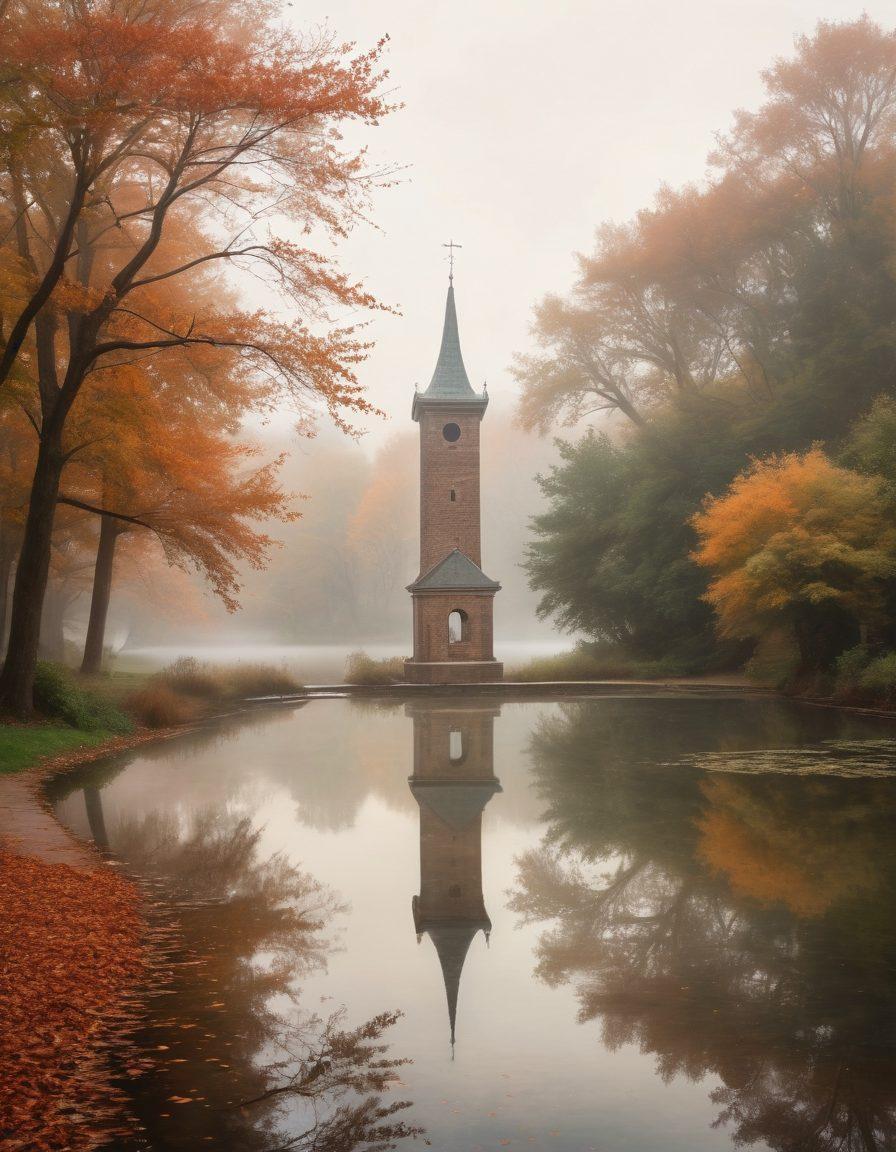Sorrowful Echoes: Exploring the Melancholy of Our Forgotten History
History is not just a collection of dates, events, and facts; it is the tapestry of human experience woven together with threads of joy and sadness. As we dive into the depths of our cultural heritage, we often encounter emotional history that tells stories of loss and grief, of tragic events that have shaped our world. Unearthing these tales is not merely an academic pursuit; rather, it is an emotional journey through our collective memory, where we come face-to-face with melancholy reflections of what once was. What are the narratives that linger in our hearts, and how do they influence our understanding of the world today?
Imagine walking through a forgotten town, where every cobblestone whispers echoes of past events. You may discover somber tales of lives interrupted, of experiences that mirror our own struggles, triumphs, and tragedies. These historical accounts open the door to the narrative history of our ancestors, illuminating the shadowy corners of cultural history. When we engage with these stories, we are not merely observers but participants in a grand emotional odyssey. Why do we feel compelled to reflect on these moments? The answer lies in our shared humanity.
Every personal story brings with it a unique perspective on historical significance. The historical narratives we uncover are laced with the sadness that permeates human existence. They remind us of the fragility of life and the lessons we can learn from our past. As we navigate through the yarn of anecdotal history, we find that each thread weaves a larger picture of resilience and vulnerability. How do these tales inspire us to forge our own narratives amidst adversity? They encourage us to embrace the complexities of our lives with open hearts.
As we embark on our historical reflection, we confront the inherent melancholy of certain events that have left indelible marks on humanity. From the painful recollections of wars to the heartbreaking tales of personal loss, we mustn't shy away from exploring these somber aspects of our past. This journey through emotional history not only fosters understanding but also builds empathy within us. How do we honor those who suffered? By keeping their memories alive, we ensure that their experiences resonate and ripple through generations.
In a world that often feels fragmented, revisiting our cultural heritage through the lens of remembrance can strengthen our roots. By engaging with oral history and historical analysis, we create a bridge to our past, allowing us to connect our lives to those who walked before us. The stories we uncover illuminate the human experience in all its forms, offering lessons and insights that can guide us forward. As we navigate our own journeys, let us cherish these poignant echoes and amplify the voice of sorrowful history for all to hear.
Echoes of Loss: How Historical Events Shape Our Collective Memory
Every corner of our world is steeped in history, but often it is the echoes of loss that resonate most profoundly in our collective memory. Think back to the stories passed down through generations—stories filled with both beauty and sadness. What do they evoke in us? Why do certain historical events linger in our minds like an unfinished melody? When we peel back the layers of our cultural heritage, we discover that the narrative history we carry is often marked by melancholy. These stories of loss and grief remind us of our humanity, revealing the vulnerable threads that connect us all.
The emotional history embedded in our past can be both haunting and healing. Consider the tragic events that have shaped societies—a natural disaster, a catastrophic war, or the oppression of marginalized communities. Each of these historical accounts contributes to our societal fabric, leaving behind somber tales that demand remembrance. As we reflect on these historical narratives, we engage in a form of historical analysis that allows us to confront our shared sorrowful history. It's not just a collection of dates and events; it’s an examination of how loss and grief have sculpted our identities.
As we explore these echoes of loss, we must ask ourselves: How do we ensure that these personal stories do not fade into whispers of the past? Oral history plays a crucial role in preserving our cultural memory. By sharing anecdotal history, we breathe life into past events, transforming mere dates into vibrant, relatable experiences filled with emotion. Each life story we tell reinforces the significance of the human experience, reminding us that the sadness we encounter in history is intertwined with joy, resilience, and growth. What's more, these stories encourage us to connect with one another on a deeper level, fostering a communal acknowledgment of our collective loss.
Many people wonder why we should dwell on sadness when we could focus on progress. However, in order to truly appreciate the joys of the present, we must first acknowledge the tragedies of the past. Historical reflection is essential to our understanding of how current events shape our emotional landscape. Each sorrowful note in our history invites us to learn from the mistakes of those before us, urging us towards a future that respects the fragility of human life and the importance of empathy. Isn’t it profoundly humbling to realize that our ancestors’ experiences, filled with both hope and despair, serve as a bridge to our own journey?
In conclusion, the echoes of loss resound within us, guiding our collective memory and cultural history. While we may find ourselves wrapped in sadness over historical events, the true power lies in our ability to honor those stories, to weave them into the fabric of our society. Embracing our emotional history not only enriches our lives but also strengthens our bonds with one another. As we engage with these sorrowful tales, let us celebrate their existence—transforming grief into a memorial that fosters understanding, compassion, and a commitment to bettering our shared future. How will you carry these echoes of loss forward into your own life?
Reflections on Melancholy: Personal Stories that Highlight Our Forgotten Past
In the quiet moments of life, when the world slows down and we allow ourselves to ponder, reflections often surface—emotions tied to our past, shadows of history lingering just beyond the veil of memory. History is not only inscribed in textbooks; it is woven into the very fabric of our collective consciousness. Our cultural heritage is steeped in melancholy, filled with poignant stories and echoes of sadness that resonate through time. As we explore the narratives of our forgotten past, we encounter personal stories that highlight the significance of these historical events—tales wrapped in loss and grief, reminding us of the human experience that persists despite the sorrowful history of our ancestors.
When we delve into the realm of past events and their historical accounts, we begin to see the cultural history that binds us together. Every anecdotal history holds a lesson, a glimpse into the trials and tribulations faced by our predecessors. Have you ever thought about how a single tragic event could ripple through generations? The loss experienced by one community could resonate in the hearts of many, creating a shared sorrow that transcends time. As we reflect on these somber tales, it is vital to recognize that they carry broad emotional significance, enabling us to understand the depths of our humanity through the lens of historical reflection.
In studying historical narratives, we find countless personal stories—each one a powerful testament to resilience, love, and the burden of remembrance. For instance, consider the stories that emerge from the ashes of war. The echoes of conflict are filled with remarkable tales of survival and despair, where individuals grapple with the aftermath of tragic events that alter lives irrevocably. These narratives are not just historical analysis; they are emotional history, rich with the complexities of feeling and experience. They breathe life into the facts and figures, reminding us that behind every date, there exist hearts that ached and spirits that soared, weaving the intricate tapestry of our legacy.
But how do we start embracing these reflections on melancholy? First and foremost, we must create space for these stories. Record oral histories from our elders, invite reflections from our communities, and foster conversations that bring light to the shadows of our history. Engaging in these discussions not only honors those who came before us but also cultivates empathy and understanding within our society. By sharing our life stories, we mend the gaps in our collective memory. In essence, every tale of sorrow contains the seed of hope, encouraging us to move forward with awareness and compassion for one another.
As we traverse through the ebbs and flows of our emotional history, let us not shy away from the acknowledgment of our losses. Every heart-wrenching detail captured through personal stories serves as a crucial reminder of where we come from. By embracing our lamentations and uplifting our cultural history, we foster a brighter future—one that cherishes our past while paving a path of remembrance and insight. So, the next time you’re swept away by the echoes of a sorrowful narrative, pause, listen, and allow it to inspire you to honor our collective history with dignity and heart.


